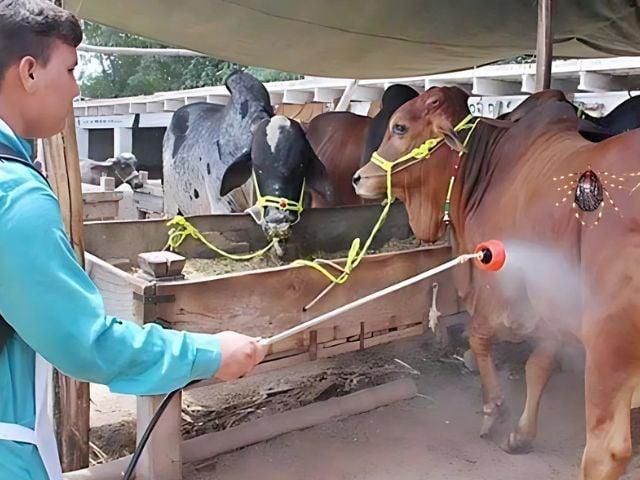Pakistan’s National Institute of Health (NIH) has issued public health advice at Crimean-Congo Haemorrhagic Fever (CCHF) and increasing risks from heat waves and sunbathing as climate-related challenges are intensified throughout the country.
The advisors call on health institutions and relevant authorities to implement timely and appropriate measures to prevent disease outbreaks during the summer months.
CCHF, a potentially deadly viral disease, is caused by nairovirus and is often transferred to humans through the bite of infected ticks, especially those found on livestock such as goats, sheep and rabbits.
The virus can also be transmitted through contact with blood or tissues of infected animals, especially during or after slaughter.
Man for human transmission is also possible, especially in clinical or domestic surroundings. According to NIH data, 61 cases of CCHF were reported in Pakistan in 2024.
The advice recommends wearing light -colored clothing that makes ticks more visible, reported Express News.
Citizens are also advised to avoid visiting areas with heavy ticks and removing visible ticks from skin or clothing using safe techniques.
In a separate note, NIH warned of the growing health risks designated by heat waves and the sunstat as Pakistan faces intensified climate impacts, including rising temperatures due to global warming. They advise that heatwave -related diseases and deaths are likely to increase in the coming years.
To prevent heat current, NIH strongly recommends avoiding direct sunlight, remaining hydrated and taking other precautions to mitigate the effects of extreme heat.
Health experts warn that the frequency and severity of climate -linked diseases increases and emphasizes the need for public attention and emergency preparedness before the summer season.
Pakistan Meteorological Department (PMD) previously issued a heat wave alarm that predicted unusually high temperatures in large parts of SINDH Province through April 18.
Under the current conditions, maximum temperatures of the day in districts, including Dadu, Shaheed Benazirabad, Jacobabad, Larkana and Sukkur are expected to remain 6 to 8 ° C above normal, reported Express News.
Similarly in Badin, Tharparkar, Umerkot and Hyderabad districts, temperatures can exceed normal intervals by 4 to 6 ° C, according to the department.



